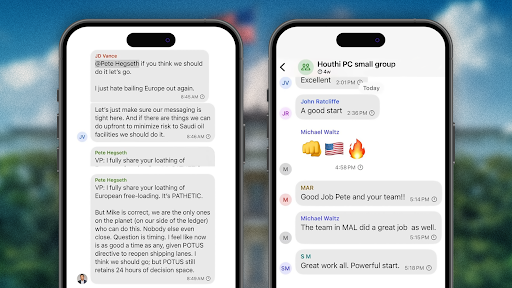Mark Zuckerberg announced on January 7th, 2025, that his social media company Meta, which owns Facebook and Instagram, will no longer work with third-party fact checking organizations or offer the service on their platforms.
Mark Zuckerberg’s decision to suspend the fact-checking tool across his Meta platform has sparked widespread controversy, raising questions about the balance between free speech and the responsibility of tech giants to combat misinformation. Meta will be replacing the fact-checking program with a community-driven system similar to that of Elon Musk’s X (CBSNews).
Computer Science teacher at Ramapo, Mr. Weydig states, “I think suspending fact-checking on Meta’s platforms could actually promote a more open environment for free speech. Without fact checkers, there would be fewer opportunities for bias or politically motivated oversight.”
Meta introduced fact-checking to its platforms in 2016 in response to the abundance of misinformation that was being spread, particularly after the 2016 U.S. presidential election. The company partnered with independent fact-checking companies certified by the International Fact-Checking Network (IFCN). The program expanded globally over the years and became a vital tool during key events such as the COVID-19 pandemic and important elections (Business Insider).
The initiative faced numerous challenges, including accusations of bias and user backlash. Trying to explain the situation and the final decision to end this program, he stated, “The fact checkers have just been too politically biased and have destroyed more trust than they’ve created, especially in the U.S.” (CBS News).
Meghan Prendergast, a junior at Ramapo High School stated, “I think Meta suspending fact checking could lead to more misinformation being spread throughout the internet. This could cause unnecessary panic or tension between many Americans.”
Critics warn that the shift could increase the spread of false narratives, especially during elections or public health crises. Since Trump’s victory over Kamala Harris in the November presidential election, Meta and other major tech companies moved to strengthen ties with the new administration. In December, Meta donated $1 million to Trump’s inaugural fund and Zuckerberg attended a dinner with him at his Mar-a-Lago estate. These actions seemed intended to repair Meta’s fractured relationship with Trump, especially after tensions rose after Facebook banned him in the aftermath of the January 6th, 2021 Capitol attack. Meta cited Trump’s posts as contributing to the day’s violence and a danger to further violence (CBS News).
“A potential challenge in suspending fact-checking would be that misinformation could spread more easily. Users who care about credibility might start losing trust in the platform. From Meta’s perspective, balancing free speech with credibility could be tough, and also result in a more chaotic and less reliable platform overall.” Said Mr. Weydig later in an interview.
According to CBS News, “‘Meta is repositioning the company for the incoming Trump administration,” Jasmine Enberg, principal analyst at research firm Emarketer, wrote in an email. “The move will elate conservatives, who’ve often criticized Meta for censoring speech, but it will spook many liberals and advertisers, showing just how far Zuckerberg is willing to go to win Trump’s approval.”’
The sudden change in perspective of Trump’s upcoming presidency within the Meta platform seemed questionable for some. As Meta makes efforts to reconcile past conflicts, it remains unknown whether this will bring needed change and a stable partnership, or a trend in biased political influence in privately owned businesses. Ultimately, the company’s approach could set a precedent for how tech giants manage accountability, influence, and relationships with political leaders moving forward.






